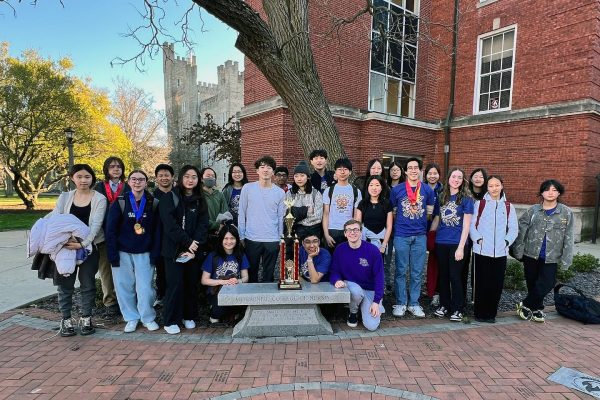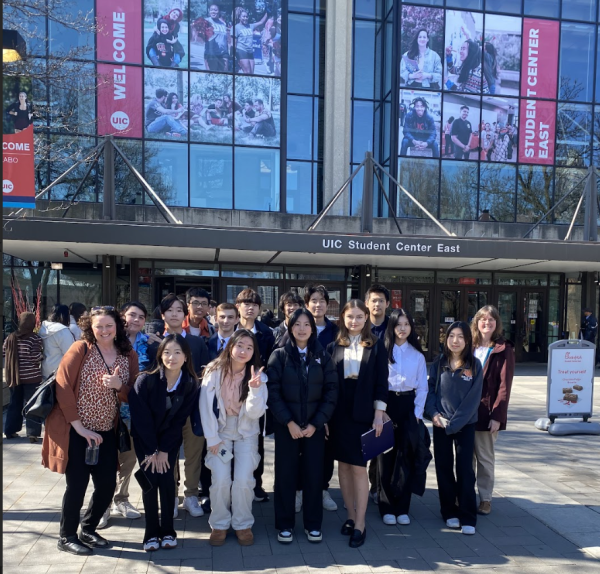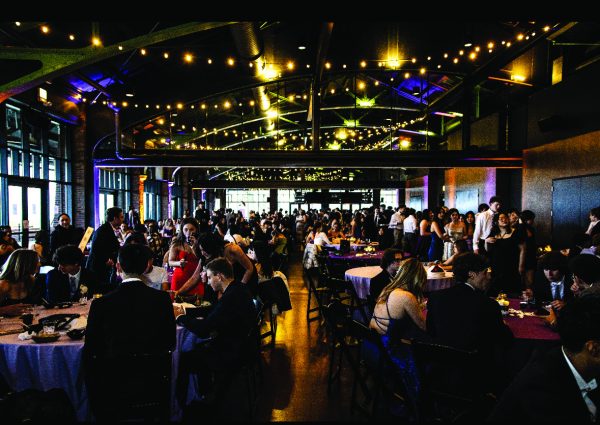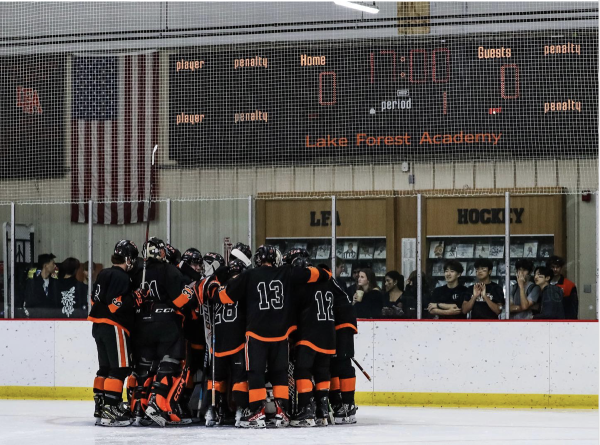“Alice”: An Immersive Outdoors Experience
November 8, 2021
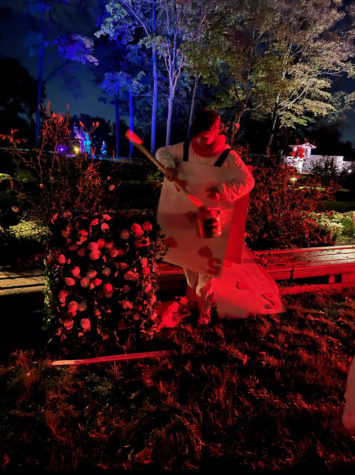
A creative cast member interpretation of the tales’ famous red cards. Photo by Finnian Harrison.
The annual Fall Play at Lake Forest Academy has traditionally marked the opening of Cressey Theater events for the year and the debut of a collective cast and crew, made up of new and returning students.
This year, the Fall Play was presented as an immersive adaptation of Alice’s Adventures in Wonderland by Lewis Carol. The show was titled Alice and was composed, produced, and performed by LFA students. This production was a unique experience for many in the theater department, faculty and students alike. Matt Boresi, the Director of Theater at LFA, said, “We can’t be afraid to empower the students and let them explore and make choices.”
Cast members had never completely created their own script before, or taken the leadership roles made possible by this rendition. More involved than ever, Lily Ainsley was the assistant director and Avani Marner was the choreographer and movement coach. Boresi said, “Every member of the crew was instrumental in the design and execution of the show.”
LFA’s Alice, a rendition of Alice in Wonderland, was written by the cast itself. This gave cast members the opportunity to give input on what the play would look like. In previous Fall Plays at LFA, casts would have to conform to the script and directions of the production nearly verbatim. This new experience gave the cast more fluidity and leniency to create the production that they believed in.
The initial issue in rendering Alice’s Adventures in Wonderland was that the character of Alice needed to be withdrawn from the script. In order to make the show immersive, the audience took on the role of Alice. To begin, the audience gathered outside the east entrance of Reid Hall, greeted by Matt Boresi, the Director of Theater, and Jason Koenig, the Fine & Performing Arts Chair.
Each guest was provided with a pinafore to wear throughout the show. They then were set to go down the rabbit hole! They encountered characters first-hand and cast members expertly buried the fourth wall. Once the cast made this critical decision, they devised more creative liberty. Final edits were primarily focused on dialogue between characters and applicability to the realities of production.
Another novel aspect of the production was that the play would be taking place outside. This decision was originally made due to predicaments of the pandemic. Luckily, LFA is home to what was found to be the perfect outdoor stage for the show: the formal gardens. The antiquated style and white floral landscaping (as the Queen of Hearts likes it) could not have been a better fit for the atmosphere of the book’s setting. Ben Arthurs, a cast member and junior at LFA, said, “To perform this show outside in the gardens was a wonderfully immersive experience for the cast, crew, and audience alike.” However, staging outside did not come without its challenges. Transitions, costume changes, and blocking had to take place over a greater stage than that of Cressey.
Once the stage was set, it was time for the casting call. It was decided that 35 key roles of the show needed fulfillment. Such a challenge was enthusiastically faced with success by the make-up of 15 ambitious actors and actresses. Arthurs said, “Learning to adapt to novel challenges and thinking on our feet was part of what made this process special for everyone involved.” Costume changes and character exchanges were seamlessly made left and right. The audience was distracted by the chase for the mad hatter, then startled to find that the mysterious cat from earlier had transformed into a dancing lobster! The focus of the audience’s attention was constantly being redirected from tea parties to thimble wars. While there were so many moving parts to the production, it ran smoothly.
The opening night of Alice was on Thursday, September 30th. Subsequent performances were scheduled for the following Friday and Sunday. However, due to rain delays and scheduling conflicts with relocation to Reid Hall, it was decided that the performance would be delayed until October 13th and 14th. This further proved the resilience and cooperation of the group.
All of this was made possible because, as Boresi said, “We have a special kind of student at LFA: they are particularly bright, they are particularly hard-chargers, and many are extremely creative.” The production was also enabled by the low student-to-teacher ratio at LFA. Students were able to collaborate closely and procure advanced feedback in order to elevate the outcome. “I think that Koenig and I are discovering a new and unique way to teach theater on the high school level,” Boresi said, “we really proved that we can do theater in a unique way here.” The results of the intricate and student-driven process in the 2021 Fall Play were stunningly innovative, thoughtful, and creative.







